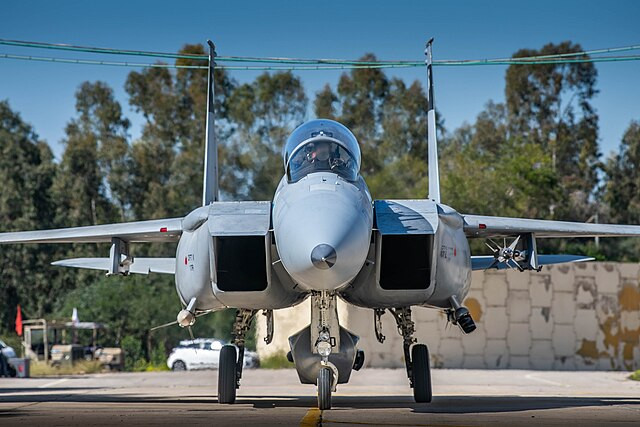Israel intensifies its operations against Hezbollah, the Iran-backed militant group, in southern Lebanon. The situation has dramatically raised concerns over a broader conflict in the Middle East, with global oil markets already feeling the impact.
Biden, when asked by reporters whether he would support Israel in targeting Iran's oil facilities, replied, "We're discussing that." His remarks contributed to a surge in global oil prices, underscoring the potential for significant disruptions to global energy supplies. While no immediate action is planned, the president clarified that Washington continues to explore a range of options in coordination with its allies.
Although Biden stopped short of endorsing an Israeli strike on Iran's nuclear sites, his administration has reaffirmed its commitment to ensure Iran faces "severe consequences" for its missile barrage. This attack, Tehran's largest against Israel to date, included around 180 missiles. While Israeli forces intercepted many of them, the strike followed the deaths of key Iranian military personnel, including senior Hezbollah and Hamas leaders, in recent Israeli airstrikes.
Israeli Prime Minister Benjamin Netanyahu has vowed that Iran will pay for the assault, with Israeli Ambassador to the U.N. Danny Danon telling CNN that his country has "a lot of options" for retaliation. However, a U.S. official noted that Israel has yet to decide on a specific course of action, highlighting the complexities of the situation. Meanwhile, Iranian President Masoud Pezeshkian warned that any military attack on Iran would be met with a "decisive response" from Tehran's armed forces.
As Israel advances its military campaign, the situation in southern Lebanon is becoming increasingly volatile. The Israeli military has called for the evacuation of more than 70 towns, including Nabatieh, the provincial capital, as it steps up cross-border operations. Hezbollah has retaliated by launching missile strikes on Israeli military targets, including the Sakhnin base in Haifa Bay, with warning sirens sounding across northern Israel.
Hezbollah claimed on Thursday to have killed 17 Israeli soldiers in southern Lebanon, though the Israeli military has not commented on these specific figures. However, Israel did confirm the death of one soldier, adding to the eight troops killed a day earlier in what has become the deadliest period in a year-long series of clashes with Hezbollah. The Lebanese army reported two of its soldiers were also killed in Israeli airstrikes, including during a rescue mission with the Lebanese Red Cross.
The conflict shows no sign of de-escalating, with Hezbollah's missile strikes prompting further Israeli bombardment of Beirut's southern suburbs, where the militant group holds sway. Israel's military reported hitting 15 Hezbollah targets in the capital on Thursday, including weapons and intelligence sites. Earlier in the week, a central Beirut airstrike killed nine people, marking one of the closest hits to the city's downtown area since the conflict began.
International concerns over the rapidly escalating conflict have prompted calls for restraint. The Group of Seven (G7), which includes the U.S. and several key European allies, condemned Iran's missile attacks on Israel but also urged for a ceasefire in Gaza and Lebanon. The G7 warned that the cycle of retaliation could lead to an uncontrollable escalation of violence across the Middle East.
Meanwhile, the humanitarian toll in Lebanon continues to mount. Over 1,200,000 Lebanese citizens have been displaced, and nearly 2,000 people have been killed in the past two weeks alone, according to Lebanese officials. Several nations, including the U.K., Japan, and Australia, have begun evacuating their citizens from Lebanon as the security situation deteriorates. The British government has chartered additional flights from Beirut, while Japan has dispatched planes to prepare for airlifts. The U.S. State Department has issued a travel advisory urging Americans to leave Lebanon while commercial options remain available.
The ongoing hostilities between Israel and Hezbollah, along with the involvement of Iran and its regional allies, have raised fears of a wider regional conflict. Iran's missile strike on Israel, the second direct attack this year, was condemned by U.S. Secretary of State Antony Blinken, who said it was "totally unacceptable." Blinken emphasized that Israel's missile defense systems, supported by U.S. partners, had largely thwarted the attack.
However, the possibility of further Iranian retaliation remains. Iran's Revolutionary Guards have threatened to launch broader strikes on Israeli infrastructure if provoked further. At the United Nations, both Iranian and Israeli officials exchanged sharp rhetoric, with Israel's representative calling the Iranian missile barrage an "unprecedented act of aggression."




